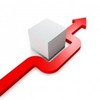War in Europe Flashcards
(27 cards)
Axis Powers (GI Joe)
Germany Italy Japan Later, Hungary, Bulgaria, Romania
Allied Powers
France Britain Later, U.S., U.S.S.R., China
Phony War (“fake” war)
Early part of WWII where there was inaction (no military battles) in Western Europe Also known as sitzkreig=sitting war
Maginot Line

A line of fortifications that were near impossible to break through
Circumvent (go around) the Maginot Line

Germany knew it could not get through the Maginot Line, so it marched through the Netherlands, Belgium, and Luxemburg to get to France
Rescue at Dunkirk
A miracle where 338,000 French troops were rescued by boat to England to avoid German attack
Fall of France
1940 Signed an armistice with Germany when it could no longer defend its self
Charles de Gaulle
French general in exile Kept a French government running in England and worked to reconquer France from Germany
exile

When a leader or criminal is legally forced to leave their country, usually because of a crime or conflict
Battle of Britain (fought entirely in the air)
Summer 1940 The Luftwaffe (German air force) bombed different cities in Great Britain, but Britain was able to use radar to know they were coming and attack back ***Germany did not take over Britain, proving that Hitler could be stopped
London Blitz
When the Luftwaffe (German airforce) brought a surprise attack on Britain
radar

A system that can detect when there is something coming, such as a plane, ship, or submarine
Operation Barbarossa
The code name for Hitler’s plan to invade the Soviet Union
Scorched earth strategy
As German armies moved into U.S.S.R., the Soviet people would take what resources they could and then burn everything else (crops, homes) so that the Germans would not have enough supplies to survive.
Lend Lease Act (1941)
The U.S. decided to sell arms and other supplies to the Allied Nations. It was $50 million and showed that U.S. was no longer neutral.
neutral
Not choosing to agree/support a certain side
Atlantic Charter
FD Roosevelt (US president) and Churchill (Prime Minister Britain) declared that there would be free trade among nations and former colonies could choose their own government Lead to independence movements
Pearl Harbor cause and effect

Cause: The US cut off the oil supply to Japan which meant that the could not use certain equipment (cars, planes, machines) Effect: Japan launched a surprise attack on the US navy harbor in Hawaii and the US officially joined WWII
Pearl Harbor- When and what it was
December 7, 1941 (the day that will live in infamy) Japan attacked the US naval harbor in Hawaii with planes and submarines
Suez Canal

A canal that connected Africa to the oil-rich Middle East (which makes you wealthy)
Erwin Rommel (“desert fox”)
-A general that helped to push back British troops -Was known for being sneaky and a clever military man
Battle of El-Alamein (Egypt)
British forces were able to stop Germany’s advancement toward Egypt with the help American forces
Battle of Stalingrad
-Turning-point on the Eastern front -Germany had nightly bombing raids on the Soviet city, but the Soviets fought back and caused the Germans to leave
Invasion of Italy
-1943 American and British forces took the island of Sicily and removed Mussolini from power -Germany fought back and put Mussolini back in power, but then Germany fell and Mussolini tried to escape


